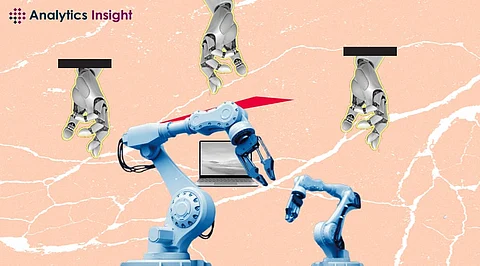

In recent years, the convergence of machine learning and robotics has resulted in significant advances in automation, with intelligent robots playing an increasingly important role in a variety of industries. Machine learning algorithms are powered by artificial intelligence (AI), and are revolutionizing robotics by allowing robots to perceive, learn, and adapt to their surroundings in real time. In this article, we will delve into how machine learning is shaping the future of robotics and paving the way for a new era of automation.
Machine learning is transforming robotics by improving robot perception capabilities of robots and sensing capabilities. With the advent of computer vision techniques and deep learning algorithms, Robots can now analyze visual input, recognize objects, and navigate complex environments autonomously. Machine learning enables robots to interpret sensor data from cameras, LiDAR, and other sensors, allowing them to precisely understand their surroundings accurately and make real-time decisions.
Machine learning algorithms enable robots to exhibit adaptive and intelligent behavior, allowing them to learn from experience and improve their performance over time. Reinforcement learning techniques enable robots to interact with the environment, receive feedback based on their actions, and adjust their behavior accordingly. This allows robots to learn tasks autonomously like holding objects, navigating obstacles, and performing complicated manipulations with dexterity and precision.
Machine learning plays a crucial role in advancing autonomous systems, allowing robots to operate independently without human interference. Autonomous robots equipped with machine learning algorithms can perceive their surroundings, plan optimal paths, and execute tasks in dynamic and unpredictable situations. This has significant implications across various industries such as manufacturing, logistics, agriculture, and healthcare, where autonomous robots can improve efficiency, productivity, and safety.
Machine learning enables robots to efficiently collaborate with humans in shared workspaces, resulting in the emergence of collaborative robots (cobots). These robots are designed to operate alongside humans, helping them with jobs that demand physical strength, precision, or repetitive activities. Machine learning algorithms allow cobots to adapt to human behavior, anticipate their behaviors, and provide assistance in safe and efficient assistance, resulting in increased productivity and workplace safety.
Machine learning algorithms allow robots to provide personalized and customized services based on individual preferences and needs. In industries like retail, hospitality, and healthcare, robots with machine learning capabilities can interact with consumers learn about their preferences, and provide personalized recommendations and help. This improves consumer satisfaction, encourages engagement, and drives the growth of business in an increasingly competitive market.
Machine learning is boosting the development of swarm robotics systems, in which several robots collaborate to achieve common goals. Swarm robotics uses distributed algorithms and decentralized control to coordinate the actions of individual robots, allowing them to complete tasks collectively and adapt to changing conditions in real-time. Machine learning allows swarm robots to interact, coordinate, and self-organize more effectively, resulting in increased efficiency, scalability, and robustness.
As robots have increasingly become more autonomous and intelligent, machine learning plays a vital part in addressing ethical and safety issues associated with robotic systems. Machine learning algorithms can be utilized to predict and prevent accidents, detect potential risks, and ensure compliance with safety rules. Furthermore, machine learning allows robots to understand ethical principles, adhere to ethical guidelines, and make ethical decisions in complicated and confusing situations, ensuring that robotics technology is used responsibly and ethically.
Machine learning is revolutionizing robotics and shaping the future of automation in significant ways. Machine learning is creating new opportunities for intelligent robots to play important roles in a variety of industries by improving perception and sensing, enabling adaptive and intelligent behavior, advancing autonomous systems, facilitating human-robot collaboration, and addressing ethical and safety concerns. As machine learning continues to evolve and mature, we can expect even more improvements in robotics, leading to a future in which intelligent robots work alongside humans to improve productivity, efficiency, and quality of life.
Join our WhatsApp Channel to get the latest news, exclusives and videos on WhatsApp
_____________
Disclaimer: Analytics Insight does not provide financial advice or guidance on cryptocurrencies and stocks. Also note that the cryptocurrencies mentioned/listed on the website could potentially be risky, i.e. designed to induce you to invest financial resources that may be lost forever and not be recoverable once investments are made. This article is provided for informational purposes and does not constitute investment advice. You are responsible for conducting your own research (DYOR) before making any investments. Read more about the financial risks involved here.
